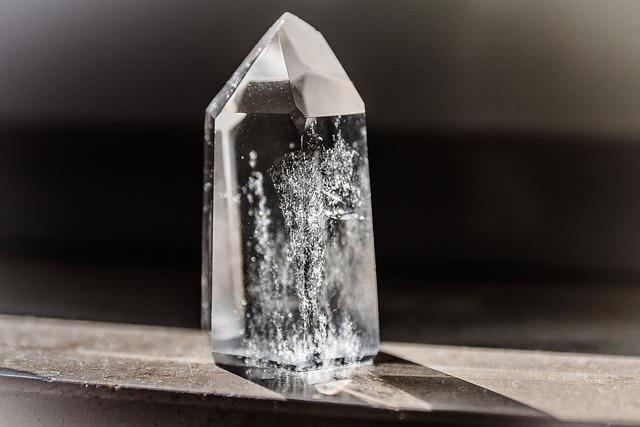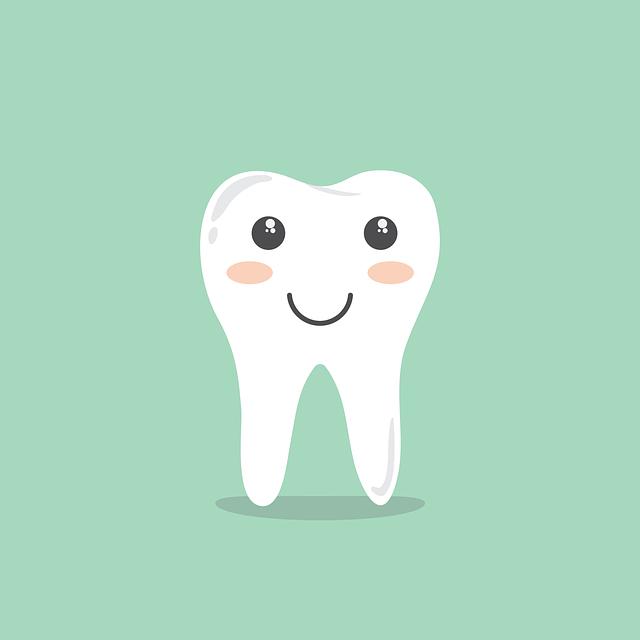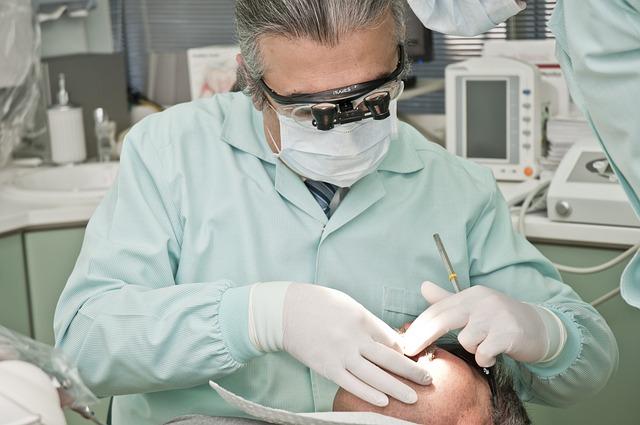Can I Gargle Salt Water After Tooth Extraction: Insights
Have you recently undergone a tooth extraction and find yourself wondering if gargling salt water can help promote healing? You’re not alone. Many individuals seek natural remedies to alleviate discomfort and expedite the recovery process after dental procedures. In this article, we will delve into the topic and provide you with insightful information on whether gargling salt water is beneficial after tooth extraction. So, sit back, relax, and let’s explore the facts together in a confident, knowledgeable, and clear manner.
1. Understanding the Benefits and Risks: Gargling Salt Water After Tooth Extraction
Gargling salt water after tooth extraction can offer several benefits, but it is important to understand the potential risks as well. Here are some key points to consider:
– Promotes healing: Salt water gargling can help to keep the extraction site clean and reduce the risk of infection. The saline solution can also soothe any discomfort or swelling, promoting faster healing.
– Reduces bacteria: Salt has natural antibacterial properties, making it an effective solution for oral hygiene. Gargling salt water can help to eliminate harmful bacteria in the mouth and minimize the risk of developing infections.
– Alleviates pain: The warm salt water can provide temporary relief from pain or discomfort after a tooth extraction. It acts as a natural analgesic, soothing the area and reducing inflammation.
However, it’s crucial to be aware of the potential risks associated with gargling salt water after tooth extraction:
– Irritation or dryness: Excessive use of salt water gargles can lead to irritation or dryness of the oral tissues. It is essential to follow the recommended frequency and concentration to prevent any adverse effects.
– Delayed healing: While salt water gargling can promote healing, using a solution that is too concentrated or gargling too vigorously may hinder the healing process. It’s important to follow the dentist’s instructions and not overdo it.
– Allergy or sensitivity: Some individuals may be allergic or sensitive to salt water. If you experience any unusual symptoms or irritation after gargling, it is best to consult your dentist for further guidance.
Remember, it is always recommended to consult with your dentist before starting any post-tooth extraction care routine, including gargling salt water. They can provide personalized advice based on your specific situation and ensure the best possible outcome for your oral health.

2. The Healing Power of Salt Water: Is It Safe to Gargle After Tooth Extraction?
Salt water gargling is often recommended as a natural remedy for various oral ailments, including tooth extraction. While it does have some potential benefits, it is important to consider the safety aspect before incorporating it into your post-extraction routine. Here’s a breakdown of the healing power of salt water and whether it is safe to gargle after tooth extraction.
1. Benefits of salt water gargling:
– Salt water acts as a natural disinfectant, helping to prevent infection and reduce inflammation in the mouth.
- Gargling with salt water can promote healing by keeping the extraction site clean and free from bacteria.
– It can also provide temporary relief from discomfort and pain associated with tooth extraction.
2. Safety considerations:
– It is generally safe to gargle with salt water after a tooth extraction, but it is crucial to follow proper guidelines and consult your dentist for personalized advice.
– Wait at least 24 hours after the extraction before starting salt water gargles to avoid dislodging the blood clot, which is essential for proper healing.
– Use lukewarm water and dissolve half a teaspoon of salt in 8 ounces of water for the gargling solution. Avoid using excessive amounts of salt, as it can cause dehydration or irritation.
3. Precautions to keep in mind:
– Gently swish the salt water around your mouth, making sure not to forcefully spit or rinse, as it may disrupt the healing process.
– Do not use salt water gargles as a substitute for prescribed medications or follow-up care recommended by your dentist.
– If you experience severe pain, excessive bleeding, or any other concerning symptoms, contact your dentist immediately.
Remember, while salt water gargling can offer some benefits after tooth extraction, it is essential to proceed with caution and follow professional advice. By doing so, you can harness the healing power of salt water safely and effectively for a smoother recovery.
3. Exploring the Science: How Salt Water Can Aid in Post-Extraction Recovery
Salt water has long been recognized for its healing properties, and it turns out that it can also play a role in post-extraction recovery. When a tooth is extracted, it leaves behind an open socket that can be susceptible to infection or other complications. However, rinsing the mouth with salt water can help to cleanse the area and promote faster healing.
Here are a few ways that salt water can aid in post-extraction recovery:
– Reduces swelling: Salt water has natural anti-inflammatory properties that can help to reduce swelling and discomfort in the mouth after a tooth extraction. A simple salt water rinse can alleviate some of the pain and promote a more comfortable healing process.
– Prevents infection: The salt in the water creates an environment that is inhospitable to bacteria, making it less likely for an infection to develop in the extraction site. Rinsing with salt water can help to keep the area clean and free from harmful bacteria.
– Promotes healing: Salt water can help to stimulate blood flow to the extraction site, which in turn promotes faster healing. It also helps to remove any debris or food particles from the area, allowing the body to focus on repairing the damaged tissues.
To make a salt water rinse, simply dissolve half a teaspoon of salt in a cup of warm water. Gently swish the solution around your mouth for about 30 seconds, then spit it out. Repeat this process a few times a day for the first few days after your extraction to aid in your recovery. Remember to consult with your dentist for specific post-extraction care instructions.
4. Expert Advice: When and How to Gargle Salt Water After Tooth Extraction
After a tooth extraction, it is important to take proper care of your mouth to promote healing and prevent infection. Gargling salt water can be an effective way to aid in the healing process. Here’s some expert advice on when and how to gargle salt water after a tooth extraction:
When to gargle salt water:
- Wait at least 24 hours after the tooth extraction before attempting to gargle salt water. This allows the initial blood clot to form and protects the extraction site.
- If your dentist recommends it, you can start gargling salt water 24 hours after the extraction. Always follow your dentist’s instructions.
- If you experience excessive bleeding or severe pain, consult your dentist before gargling salt water.
How to gargle salt water:
- Dissolve half a teaspoon of salt in 8 ounces of warm water. Make sure the water is not too hot to avoid causing any discomfort.
- Tilt your head back slightly and take a small sip of the salt water mixture.
- Gently swish the salt water around your mouth, focusing on the extraction site, for about 30 seconds.
- Spit the salt water out and rinse your mouth with plain water.
- Repeat this process 2-3 times a day, or as directed by your dentist, until the extraction site has fully healed.
Remember, gargling salt water is not a substitute for proper oral hygiene. Continue to brush your teeth gently, avoiding the extraction site, and follow any additional instructions provided by your dentist for a smooth recovery.
5. Unveiling the Facts: Myth versus Reality in Gargling Salt Water After Extraction
Gargling salt water after tooth extraction is a common practice that has been surrounded by various myths and misconceptions. It is important to separate fact from fiction in order to make informed decisions about post-extraction care. Here, we debunk some of the common myths associated with gargling salt water after extraction:
Myth 1: Salt water can speed up the healing process. Reality: While gargling salt water can provide temporary relief and help keep the extraction site clean, it does not directly accelerate the healing process. The body’s natural healing mechanisms play a much larger role in the recovery.
Myth 2: Gargling salt water prevents infection. Reality: Salt water is not a guaranteed preventive measure against infection. While it can help reduce the number of bacteria in the mouth, it is not a replacement for proper oral hygiene practices such as regular brushing and flossing. If you suspect an infection, it is best to consult your dentist for appropriate treatment.
Myth 3: Gargling salt water eliminates pain completely. Reality: Salt water can provide temporary relief from pain and discomfort, but it may not completely eliminate it. It is important to follow your dentist’s instructions regarding pain management, which may include prescribed medication.
6. A Step-by-Step Guide: Proper Technique for Gargling Salt Water After Tooth Extraction
Gargling salt water is a simple yet effective technique that can aid in the healing process after a tooth extraction. Follow these step-by-step instructions to ensure you are using the proper technique:
1. Prepare the salt water solution: In a clean glass, mix 1/2 teaspoon of salt with 8 ounces of warm water. Stir until the salt is completely dissolved.
2. Take a small sip of the salt water solution and tilt your head back slightly.
3. Gently swish the solution around your mouth, making sure it reaches all areas, especially the extraction site. **Do not gargle forcefully**, as this may disrupt the blood clot that is forming and prolong the healing process.
4. Continue to swish the solution for about 30 seconds to one minute. Spit it out into the sink, being careful not to swallow any of the salt water.
5. Repeat this process 2-3 times a day, particularly after meals, for the first few days following your tooth extraction. This will help cleanse the area, reduce bacteria, and promote healing.
Remember, it is essential to follow these steps precisely to ensure the salt water gargle is effective in aiding your recovery. If you experience any unusual symptoms or have concerns, consult your dentist for further guidance.
7. Precautions and Considerations: Important Factors to Keep in Mind Before Gargling Salt Water
Before you start gargling salt water for its potential health benefits, it is essential to consider a few precautions to ensure your safety and maximize the effectiveness of this remedy. Here are some important factors to keep in mind:
- Proper salt concentration: It is crucial to maintain the correct salt-to-water ratio when preparing the solution. A mixture of 1/2 teaspoon of salt per 8 ounces of warm water is generally recommended. Using too much salt can cause irritation, while using too little may not provide the desired effect.
- Temperature of the water: The temperature of the water used for gargling should be lukewarm. Hot water can scald your mouth and throat, while cold water may cause discomfort. Lukewarm water helps to dissolve the salt effectively and provides a soothing sensation during gargling.
- Avoid swallowing the solution: While gargling, be cautious not to swallow the salt water mixture. Swallowing excessive amounts of salt water can lead to dehydration and electrolyte imbalances. Spit out the solution after gargling and rinse your mouth with plain water to remove any remaining salt residue.
- Frequency and duration: Gargling with salt water should be done as directed by your healthcare professional or based on the specific remedy you are using it for. It is generally recommended to gargle for about 30 seconds to one minute, repeating the process 2-3 times a day or as advised.
- Consultation with a healthcare professional: If you have any pre-existing medical conditions, such as high blood pressure or kidney problems, or if you are pregnant, it is important to consult with your healthcare professional before incorporating salt water gargling into your routine. They can provide personalized guidance and ensure it is safe for you.
By keeping these precautions and considerations in mind, you can safely and effectively utilize the benefits of gargling salt water for various purposes, such as soothing a sore throat or promoting oral health.
8. Alternative Solutions: Exploring Other Options for Post-Extraction Oral Care
When it comes to post-extraction oral care, there are several alternative solutions worth exploring. These options can provide additional benefits and help promote faster healing and recovery. Here are some alternatives to consider:
- Over-the-counter mouthwashes: Using an antimicrobial mouthwash can help reduce the risk of infection and keep the extraction site clean. Look for a mouthwash specifically formulated for post-extraction care, which typically contains ingredients like chlorhexidine or hydrogen peroxide.
- Warm saltwater rinses: A simple yet effective alternative is rinsing your mouth with warm saltwater. This natural solution can help reduce inflammation and promote healing. Dissolve half a teaspoon of salt in a glass of warm water and gently swish it around your mouth for about 30 seconds before spitting it out.
- Natural remedies: Some people find relief and healing benefits from natural remedies such as herbal teas, essential oils, or herbal compresses. While these alternatives may not have scientific evidence to support their efficacy, they can be worth exploring if you prefer a more holistic approach.
Remember to consult with your dentist or oral surgeon before trying any alternative solutions to ensure they are suitable for your specific case. They can provide personalized recommendations and guidance based on your unique needs and circumstances.
9. Personal Experiences: Testimonials from Those who Gargled Salt Water After Tooth Extraction
Our readers have shared their personal experiences and testimonials regarding the effectiveness of gargling salt water after tooth extraction. Here are some of their stories:
- John: I was skeptical at first, but I decided to give gargling salt water a try after my tooth extraction. I followed the recommended ratio of salt to water and gently swished it around in my mouth for about 30 seconds, twice a day. Not only did it provide relief and reduce swelling, but it also helped to keep my mouth clean. I definitely recommend this natural remedy.
- Sarah: Gargling salt water was a game-changer for me after my tooth extraction. It was easy to prepare and gave me instant relief from discomfort. The warm salt water helped to soothe the soreness and speed up the healing process. I noticed a significant reduction in swelling within a couple of days. It’s a simple and cost-effective solution that I highly recommend to anyone going through a similar procedure.
- Michael: I’ve had multiple tooth extractions, and gargling salt water has become a crucial part of my post-extraction routine. It not only helps to keep the extraction site clean but also prevents infection. I’ve experienced faster healing and less discomfort compared to when I didn’t use this remedy. It’s an easy and natural way to promote oral health during the recovery period.
These testimonials from individuals who have tried gargling salt water after tooth extraction demonstrate the positive impact it can have on the healing process. Remember to consult your dentist or oral surgeon for specific instructions and to ensure it is suitable for your particular situation.
10. Final Verdict: Weighing the Pros and Cons of Gargling Salt Water After Tooth Extraction
Gargling salt water after a tooth extraction is a common practice recommended by some dental professionals. However, it is important to carefully consider the pros and cons before deciding whether to incorporate this technique into your post-extraction routine.
Pros:
1. Reduces inflammation: Gargling salt water can help reduce swelling and inflammation in the mouth, promoting faster healing and providing relief from post-extraction discomfort.
2. Prevents infection: Salt water has natural antibacterial properties that can help prevent infection in the extraction site. It acts as a gentle disinfectant, keeping the area clean and minimizing the risk of complications.
3. Soothes pain: The warm salt water solution can provide a soothing effect, temporarily alleviating pain and discomfort associated with the extraction.
Cons:
1. Risk of overdoing it: While salt water gargles can be beneficial, excessive use can lead to adverse effects. Over-gargling may disrupt the delicate balance of oral bacteria, causing dryness or irritation in the mouth.
2. Limited effectiveness: Salt water gargles are not a substitute for proper oral hygiene. While they can provide temporary relief, they do not replace regular brushing, flossing, and rinsing with a dentist-recommended mouthwash.
3. Allergic reactions or sensitivities: Some individuals may be allergic or sensitive to salt water. It is important to be aware of any adverse reactions and discontinue its use if any discomfort or irritation occurs.
Ultimately, the decision to gargle salt water after a tooth extraction should be made in consultation with your dentist. They can provide personalized advice based on your specific dental needs and ensure that you follow the most appropriate post-extraction care routine.
Frequently Asked Questions
Q: Can I gargle salt water after tooth extraction?
A: Yes, gargling salt water after a tooth extraction can be beneficial for promoting healing and reducing the risk of infection.
Q: How does gargling salt water help in the healing process?
A: Gargling salt water creates a saline solution that helps cleanse the extraction site, keeping it free from bacteria and food particles. This promotes faster healing and reduces the risk of complications.
Q: What is the recommended salt-to-water ratio for gargling?
A: A generally recommended ratio is 1/2 teaspoon of salt to 8 ounces of warm water. However, it is always best to follow your dentist’s specific instructions for your individual case.
Q: How often should I gargle salt water after a tooth extraction?
A: It is typically advised to gargle salt water gently, at least 2-3 times a day, especially after meals, for the first few days following the extraction. Again, your dentist may provide you with specific instructions based on your unique situation.
Q: Are there any precautions I should take while gargling salt water?
A: Yes, it is important to ensure that the water is lukewarm to avoid any discomfort. Additionally, take care not to gargle forcefully, as this may disrupt the healing process. Gentle swishing is sufficient.
Q: Can gargling salt water replace other post-extraction care methods?
A: Gargling salt water should not replace other important post-extraction care methods, such as prescribed medications, avoiding strenuous activities, and maintaining good oral hygiene. It should be used as a supportive measure alongside your dentist’s instructions.
Q: Are there any situations when gargling salt water is not recommended?
A: Gargling salt water may not be recommended if you have any specific medical conditions or if your dentist advises against it due to certain complications or concerns. Always consult your dentist before starting any new oral care routine.
Q: How long should I continue gargling salt water after tooth extraction?
A: The duration of gargling salt water may vary depending on the individual case. It is generally recommended to continue for the first week after extraction, but your dentist will provide you with specific guidance based on your healing progress.
Q: What are some signs of infection or other complications after tooth extraction?
A: If you experience severe pain, excessive bleeding, swelling, pus formation, persistent fever, or any other concerning symptoms, you should contact your dentist immediately. These may indicate an infection or other complications that require prompt attention.
Q: Is gargling salt water a substitute for professional dental advice?
A: No, gargling salt water should not replace professional dental advice. It is always important to consult your dentist for personalized guidance and to address any concerns you might have regarding your specific case.
Closing Remarks
In conclusion, the question of whether one can gargle salt water after a tooth extraction has been thoroughly examined. Our insights reveal that gargling salt water can indeed be beneficial in promoting healing and reducing the risk of infection. The saline solution helps cleanse the area, soothes discomfort, and aids in the removal of debris. However, it is crucial to follow the instructions provided by your dentist or oral surgeon, as every case is unique. It is also important to note that salt water gargles should only be implemented once the initial healing period has passed. As always, consulting with a dental professional is the best course of action to ensure a safe and effective recovery.






